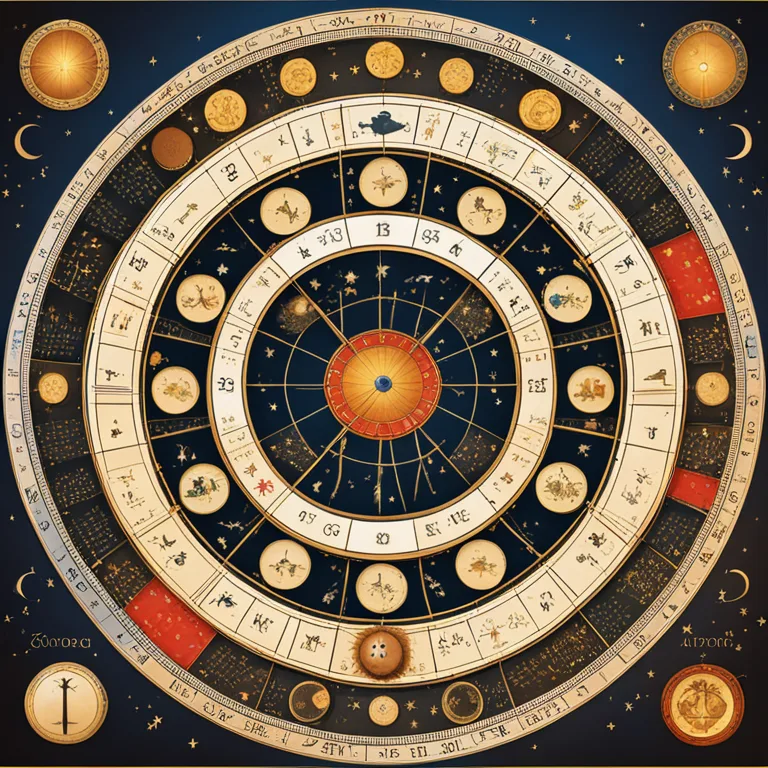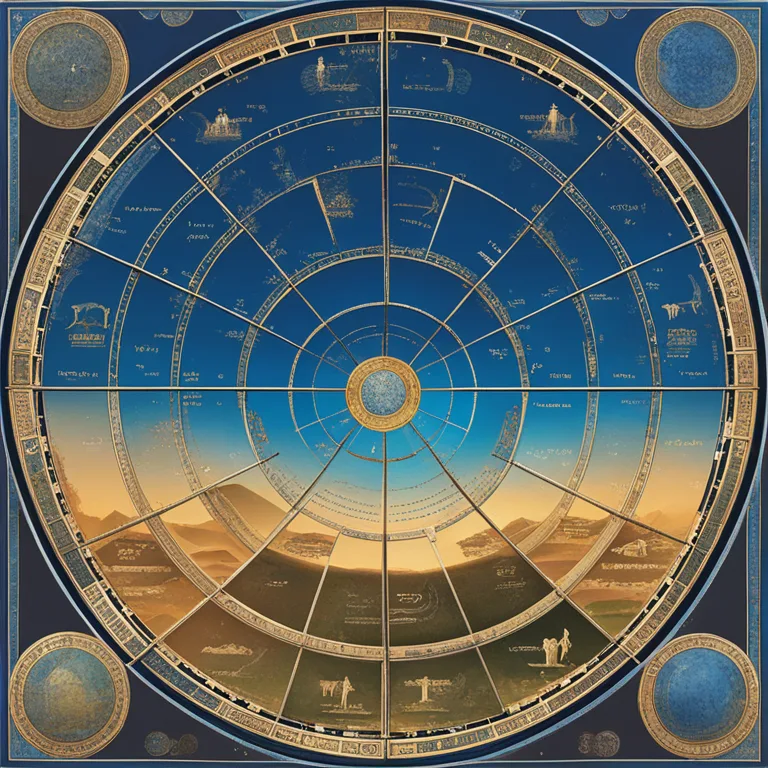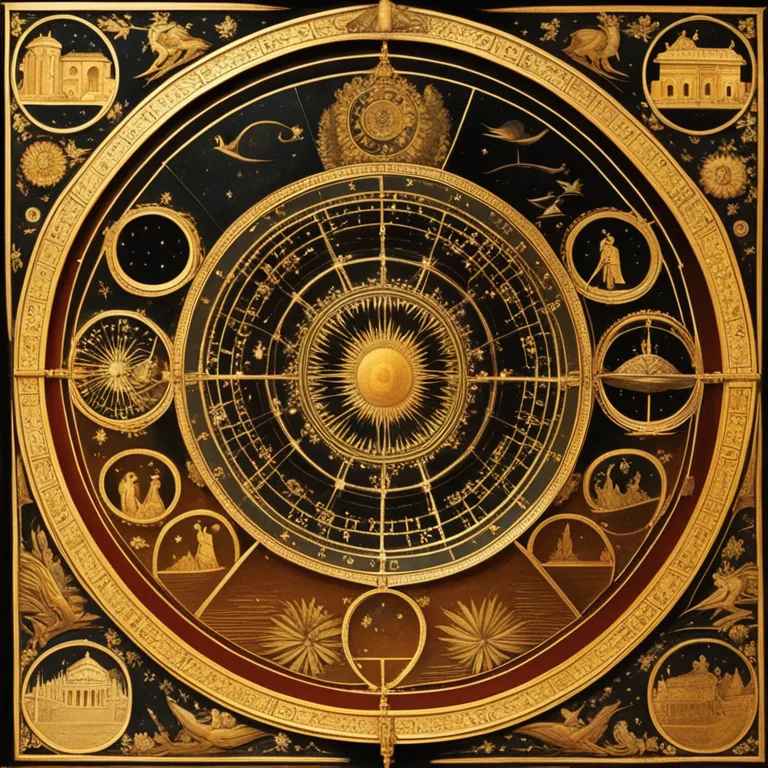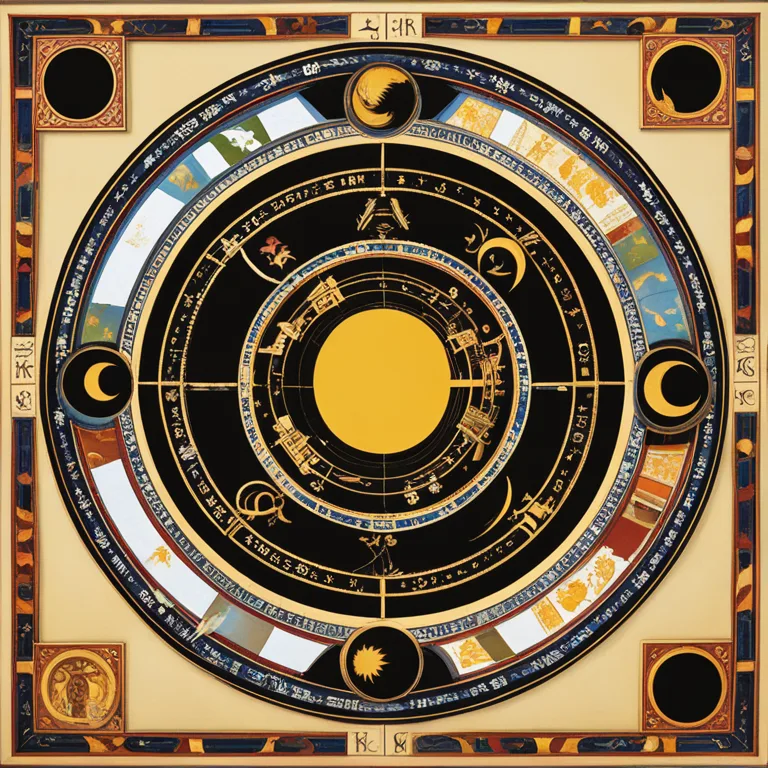
The Birth Of The Zodiac
Delve into the ancient origins of the zodiac signs and their influence on modern astrology.
article by Sofia Ferguson
The Zodiac's Ancient Roots
Zodiac signs, a cornerstone of modern astrology, have further-reaching origins than many may know. These celestial symbols trace back to the Babylonians, who, more than 3,000 years ago, divided the sky into twelve distinct parts. Their observations linked the changing seasons with specific constellations that rise in the night sky throughout the year. This deep connection between the heavens and Earth's cycle formed the cradle of what we now recognize as the zodiac. As civilizations interacted, knowledge of the zodiac spread, with both the Greeks and Romans adopting and adapting these astral insights into the well-defined system we are familiar with today.

Celestial Patterns and Predictive Power
Each of the twelve zodiac signs corresponds to a constellation, a time of year, and is assigned unique attributes and personalities. These alignments are believed to wield influence over individuals born under them. The predictive power ascribed to the zodiac stems from the movement of celestial bodies — notably the sun, moon, and planets — through these constellations, each traveling its own course and cyclically impacting our lives. Astrological forecasts for 2024 and beyond continue to rely on the foundational principle that celestial harmony can foretell terrestrial events.

The Sun's Path and the Horoscope
The word 'horoscope' comes from the Greek words 'hora,' meaning time, and 'scopos,' meaning observer. It represents the snapshot of the sky at the moment of one's birth. Central to horoscopic astrology is the ecliptic, the apparent path the sun takes across the celestial sphere over the course of the year. The division of the ecliptic by the twelve zodiac signs serves as the basis for generating horoscopes, guiding astrologers in predicting future trends and individual fortunes as we head into 2024 and the years that follow.

Cultural Syncretism and Astrology
Astrology's journey through history is marked by a rich tapestry of cultural syncretism. From the Babylonians to the Greeks and Romans, and eventually spreading throughout Europe and Asia, each culture infused the practice with its own mythology and understanding of the cosmos. It was during the Hellenistic period that the tropical zodiac we use today was sturdily framed, incorporating the planetary motions and equinoxes. Despite science advancing our comprehension of the universe, the allure of astrological traditions persists, illustrating a timeless quest to find meaning in the stars.

The Zodiac Today and Tomorrow
Today, the zodiac signs still serve as a guide to self-discovery, compatibility, and forecasting life events, adapted to new ages and sensibilities. Looking forward, forecasts consider the complex interplay of planetary positions and alignments expected in the coming years. As we approach 2024, astrology enthusiasts eagerly anticipate interpretations of how these celestial shifts may influence personal and collective experiences. The zodiac continues to evolve, remaining a source of curiosity and introspection in an ever-changing world.
Published: 12/18/2023
Modified: 12/18/2023
More predictions
Come back here soon to learn more about yourself and your future



